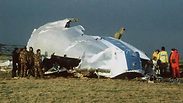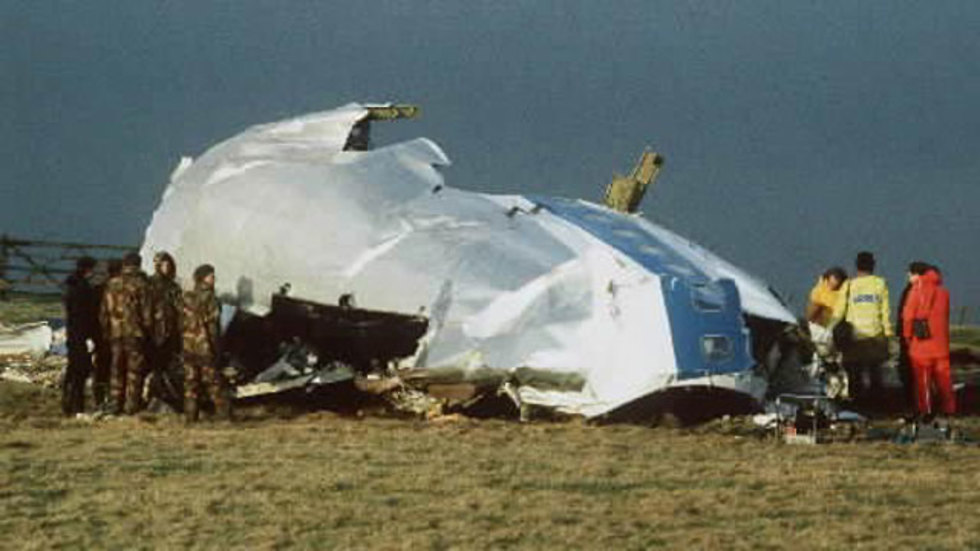
30 years after Lockerbie, aerial terrorism still blights our world
Op-ed: The tragedy of 9/11 and subsequent plane bombings have not lessened the horror of the day when a passenger jet fell out of the sky onto a tiny Scottish town; we must unite to stop the people behind such heinous acts.
We are now marking the 30th anniversary of the Lockerbie attack, aka the Pan-Am Flight 103 attack — the bombing of a passenger plane that claimed the lives of 270 innocent people — which is widely seen as one of the most brutal acts of terrorism in history.
On December 21, 1988, a bomb aboard the plane detonated mid-flight above the small town of Lockerbie in Scotland. The explosion killed 270 people, including 11 locals who were hit by debris from the destroyed jet. At the time, it was the most lethal attacks against a civilian plane to date, with the highest number of casualties recorded. The plane had taken off from Frankfurt, Germany and was headed to Detroit via London and New York.
The joint British-American investigative committee set up in the wake of the attack ultimately blamed Libya. But we should not forget that the first round of finger-pointing was directed at Ahmed Jibril’s Popular Front for the Liberation of Palestine–General Command. This was largely due to the October 26, 1988, arrest in Germany of a small cell belonging to Jibril’s organization. Interrogation of these would-be terrorists revealed that they had planned to simultaneously attack five airplanes from Spain, the US and Israel. The operation was orchestrated and was to be led by Jibril in Damascus.
The arrested cell members helped security forces locate four of the five explosive devices, planted in the planes’ radios, armed with a barometer mechanism that would set the bombs off at a certain height. This left the fifth bomb’s location unknown; after Lockerbie, it was wrongly assumed to have been found. (Interestingly enough, the interrogation also revealed Iran's direct involvement, in order to avenge the erroneous interception of a civilian Iranian plane by an American warship.)
Blaming Libya was a sudden shift in direction, based on forensic evidence found at the scene of the crash. The Libyan motivation, according to the new suspicion, was revenge for a 1986 American strike on Muammar Gadhafi’s palace in Tripoli, in which his adopted daughter was killed along with local civilians. The US airstrike was also executed out of vengeance — for a Libyan attack at a Berlin nightclub earlier the same year, in which two American soldiers were murdered.
The findings of the Lockerbie joint investigative committee yielded tough international sanctions against Libya, which worsened the country’s economic situation and forced it to stop endorsing and enabling any sort of terrorist attacks or organizations. Moreover, the ensuing sanctions twisted Libya’s arm to the extent that the country got rid of all of its chemical weapons and even lost the desire to chase its nuclear aspirations. Jibril, Syria and Iran, however, went entirely unpunished for their involvement in the attempted bombings from Germany.
The impact of the Lockerbie tragedy remains relevant today, 30 years later. Gadhafi was wiped off the map when he was captured and killed during the Libyan revolution. Abdelbaset al-Megrahi, the Libyan blamed for planting the bomb, was tried and jailed in Britain, until he was released on compassionate grounds due to advanced, terminal prostate cancer. Al-Megrahi never confessed to the heinous crime of which he was accused, and proclaimed his innocence until the day he died. The victims’ families and some investigative journalists continue to doubt the findings of the joint committee and are searching for the real perpetrators and bring them to justice.
Aerial terrorism is still a viable threat, despite the world- and security-changing events of September 11, 2001. In October 2015, the Sinai branch of the Islamic State managed to blow up a Russian passenger plane as shortly after take off from Sharm el-Sheikh, killing 224 people. In February 2016, an al-Shabaab suicide bomber brought a computer-based improvised explosive device on board of an airplane in Somalia. Fortunately he was the only casualty, as the 80 other passengers and flight crew all survived the blast. In Australia, a July 2017 Islamic State plot to detonate an explosive device on a plane bound for Abu Dabi was thwarted, saving the lives of some 400 passengers.
The actors behind these terrorist acts are countries, organizations and people who cannot go unpunished for their crimes. There is no statute of limitations on terrorism, and bringing the real Lockerbie perpetrators to justice, even 30 years on, will directly send an ethical message of deterrence. The brutality and devastation of attacks such as Lockerbie continue haunt us years afterwards, and there is a need for closure both for the victims’ loved ones, and also the general public.
The writer is an international terrorism expert and head of the INSS Program of Terrorism and Low Intensity Conflict.











